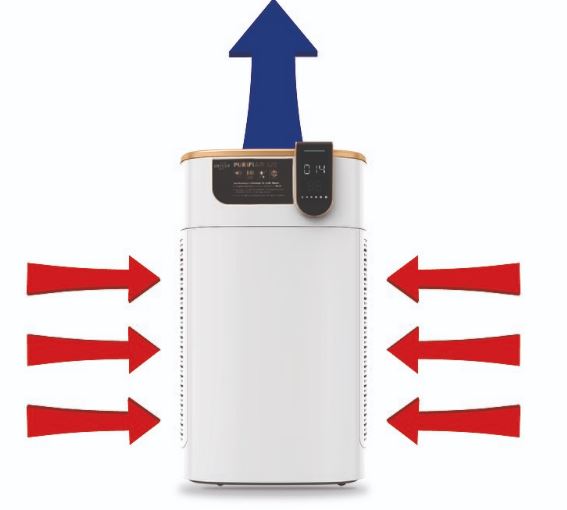The increasing concerns surrounding air pollution, especially particulate matter (PM), have found a focal point in public health considerations. As industrialization and urban expansion surge, our atmosphere gets saturated with minuscule particles capable of penetrating our respiratory system. This raises pertinent questions about its impact on individuals with chronic respiratory conditions and whether indoor air filters can indeed make a significant difference. A systematic review and meta-analysis on PubMed Central (PMC) offers insights into these issues.

Decoding Particulate Matter
Particulate matter (PM) is a collective term for tiny air particles and droplets. These particles, diverse in size and origin, have the unanimous potential to be detrimental to human health. For instance, PM2.5 signifies particles that are 2.5 micrometers or less in diameter. These minute particles can deeply penetrate the lungs and even gain access to the bloodstream. Chronic exposure to elevated PM concentrations has been correlated with several health complications, ranging from respiratory and cardiovascular disorders to premature death.
The Protective Role of Air Filters
The aim of the meta-analysis was to ascertain the connection between the application of indoor air filters and the health outcomes of patients with enduring respiratory diseases. By meticulously sifting through databases up to September 2019, the research concentrated on studies that delivered data on fluctuations in PM concentration and its subsequent ramifications on respiratory symptoms or lung functionality.
The revelations from this study can be encapsulated as follows:
- Air filters have proven their mettle in significantly diminishing indoor PM2.5 concentrations.
A majority of the analyzed studies did not signal marked improvements in respiratory manifestations or in metrics like the forced expiratory volume in one second (FEV1).
However, a prominent link was established between the utilization of air filters and enhancement in peak expiratory flow rates, especially in the subset of asthma patients.Unraveling the Paradox
- While the capability of air filters to reduce PM2.5 levels is undeniably a positive development, the stagnant status of respiratory symptoms invokes certain queries. The potential reasons might encompass:
- Duration of Exposure: The exposure period to purified air in some studies might not have been extensive enough to manifest significant health enhancements.
Presence of Additional Pollutants: PM represents just a fragment of the air pollution spectrum. Other toxic entities like volatile organic compounds might negate the beneficial effects of reduced PM quantities.
Disease Severity: Those grappling with more aggressive respiratory conditions might need interventions beyond mere air purification to witness tangible improvements.Specific Benefits for Asthma Patients
- A noteworthy takeaway from the study was the discernible improvement in peak expiratory rates in asthmatic individuals employing air filters. This intimates that certain facets of respiratory well-being, especially pertinent to asthma sufferers, could be positively influenced by cleaner air, even if the overarching symptoms remain unchanged.
Advancing Toward Cleaner Air
This investigative endeavor underlines the necessity for doing more research to unravel the precise advantages conferred by air filters, particularly in locales notorious for dense PM concentrations. It also accentuates the need for a comprehensive strategy in the battle against air pollution. While indoor air filters can be instrumental in improving air quality, overarching societal actions—like the imposition of rigorous emission standards and the championing of green spaces—are equally important.
Conclusion
The intrinsic quality of the air we breathe has profound health implications. For individuals with chronic respiratory conditions such as asthma, cystic fibrosis, and COPD, the implications are even more pronounced. While the explorative study on air filters paints a picture of mixed outcomes, it undeniably underscores the pressing challenges and avenues in our collective stride toward more breathable air. The multifaceted nature of air pollution mandates that our endeavors for cleaner air be unwavering and multifaceted.
Sources
Park HJ, Lee HY, Suh CH, Kim HC, Kim HC, Park YJ, Lee SW. The Effect of Particulate Matter Reduction by Indoor Air Filter Use on Respiratory Symptoms and Lung Function: A Systematic Review and Meta-analysis. Allergy Asthma Immunol Res. 2021 Sep;13(5):719-732. https://doi.org/10.4168/aair.2021.13.5.719
